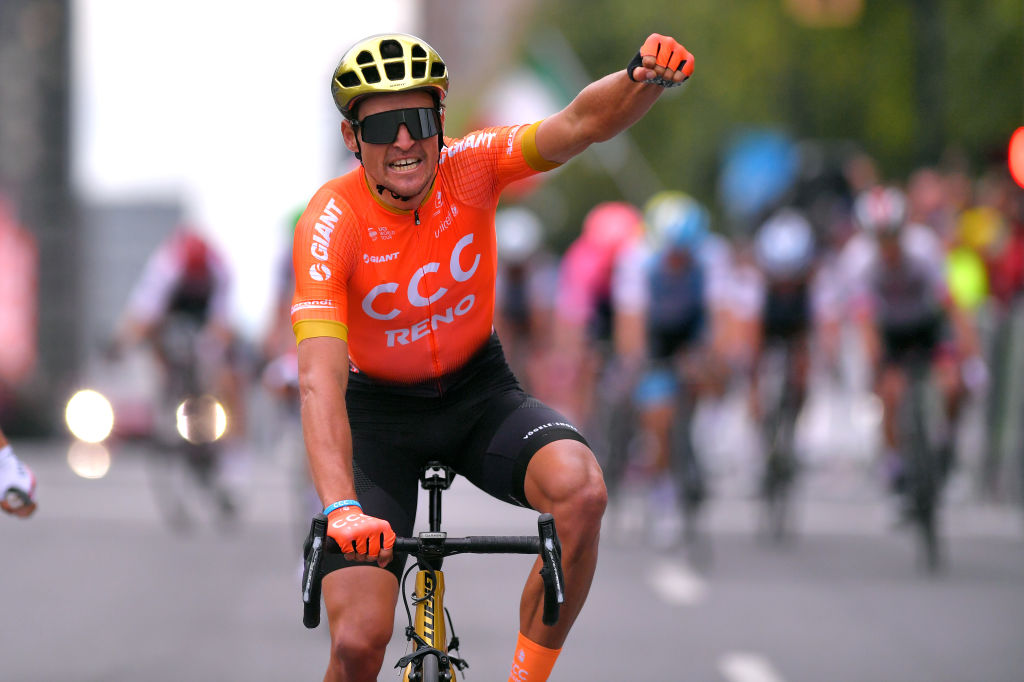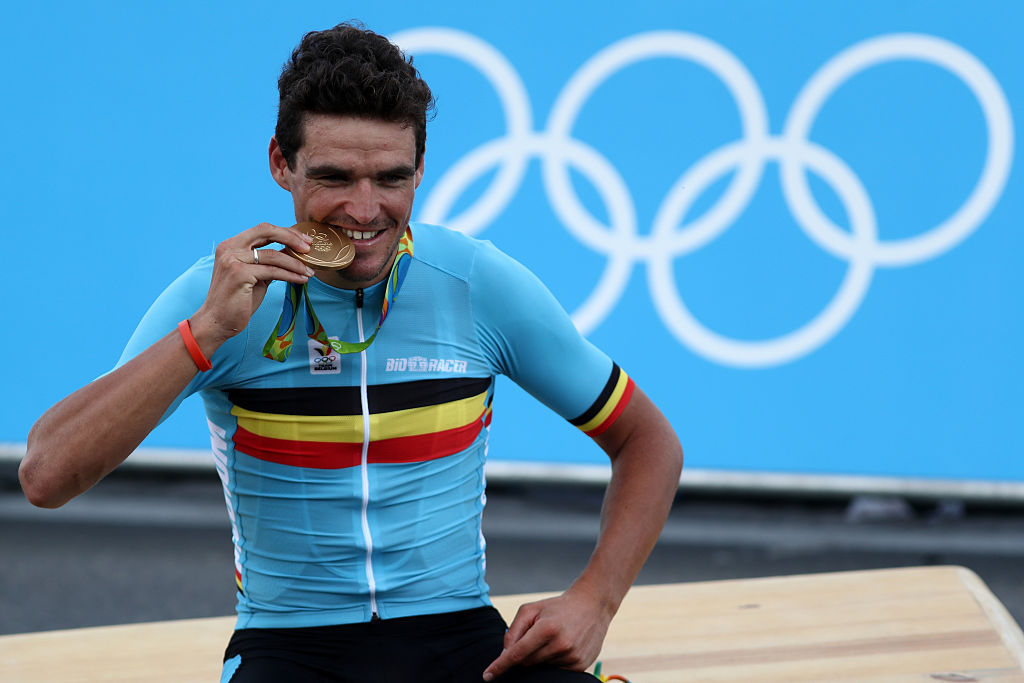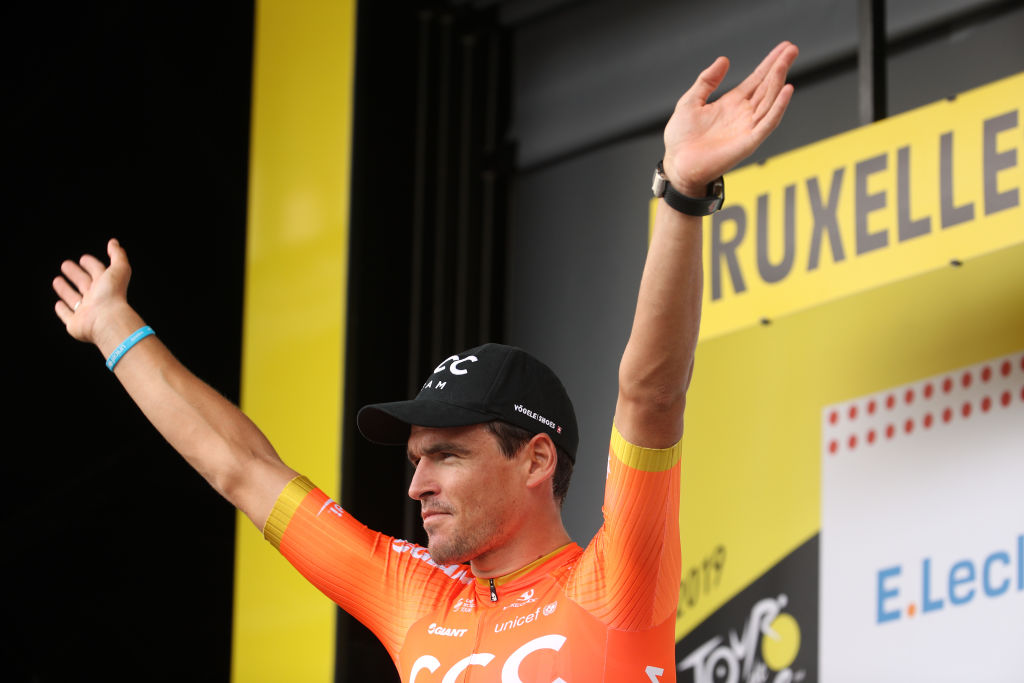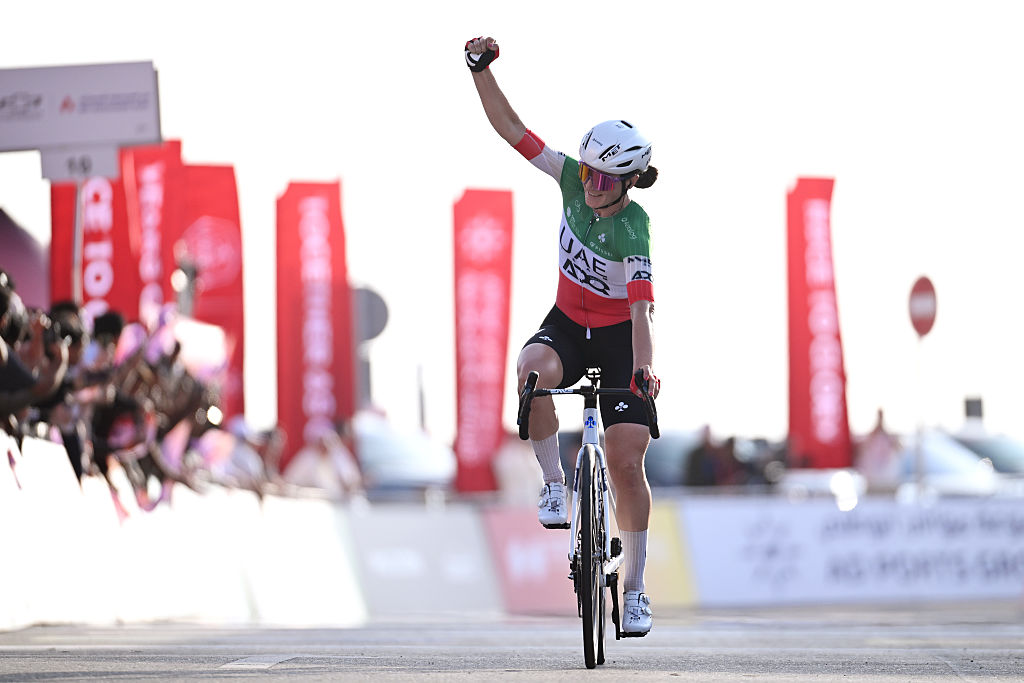Van Avermaet: Young talents will have earlier peaks but shorter careers
Belgian says he has a few good years left as he targets Olympics and Classics in 2020

The latest race content, interviews, features, reviews and expert buying guides, direct to your inbox!
You are now subscribed
Your newsletter sign-up was successful
Looking back on his 2019 campaign, Greg Van Avermaet takes pride in his consistency but regrets a lack of the "spectacular." There was the GP de Montréal victory, and stage wins in Valencia and Yorkshire, but placings were far more common than victories.
“It was not a year people will remember, and that’s a bit sad,” says the Belgian in an interview at CCC Team’s training camp in Spain.
A few minutes later, speaking about his quest to win the Tour of Flanders, he plays down the idea that it has become an obsession and says: “Overall, I’m super happy with my career – if you’d told me, when I turned pro, I’d have this palmares, I couldn’t ask for more.”
If Van Avermaet is starting to consider his legacy, it’s because he’s now 34 and aware he’s far nearer the end of his career than the start. It’s something that has been brought into stark relief this year, as a group of frighteningly young riders have taken the sport by storm.
22-year-old Egan Bernal, the youngest winner of the Tour de France in more than 100 years, 19-year-old Remco Evenepoel, winner of the Clásica San Sebastian and the European time trial title, and 21-year-old Tadej Pogacar, triple stage winner and third overall at his first Grand Tour, are at the forefront of a generation that’s making an instant impact.
“They are much more professional than we were," Van Avermaet notes. "When I came over for my first year as a pro, I didn’t know anything, I wasn’t training with power, I didn’t know my performance curves, we didn’t care about aerodynamics. Now, guys like Remco and Bernal are coming over and even telling you new stuff.
“They are on top of everything and they are more mature. They also have better U23 teams, where they go on training camps, whereas we were just at home in Belgium in the cold. You see U23 guys here in November and December already performing.”
The latest race content, interviews, features, reviews and expert buying guides, direct to your inbox!
That said, Van Avermaet does not necessarily consider this next generation more talented – just that the career arc of the professional cyclist is beginning to change.
“I think they are going to have earlier peaks but maybe shorter careers, because of the way they go with food and everything, they are directly very skinny, also with altitude training camps, they’re away from home a lot. I think it’s mentally quite hard. I see sometimes they’re finding it hard to have that cycling life, having to perform, having to be strict with everything.
“Myself, I’ve always found a good balance with home life, training and racing, and I could perform, and that’s why I have a long career. I’m not feeling stressed about what I’m doing compared to other guys.”
For Van Avermaet, who has just welcomed his second child into the world, the presence of this new generation gives him an extra kick “to show I’m still there”. As for how long he can be there: “I still have a few good years left in me, and we’ll see how far I can go. I’m always performing well, I don’t have the feeling that anything changes in my body. For two, three, four years, I can still have some really good years.
“Ok, I’m older, but I’m also more experienced. If you look at Valverde or Gilbert, especially as a Classics rider, the extra years count, because you have more depth in your condition. What changes is the explosivity and the shorter races, but for the longer races it’s even better.”

Olympics
One of the longest races Van Avermaet will do in 2020 will be the Olympic Games road race in Tokyo in later July. Another reminder of his age comes when he says it’s his “last chance” at another shot of gold to follow his victory in Rio in 2016.
The Tokyo course packs in nearly 5,000 metres of elevation gain, and many predict it will be out of the reach of the cobbled Classics riders, even the ones who thrive on hillier terrain. But then again, as Van Avermaet points out, the very same was said of the Rio course. As such, he’s making no secret that it’s one of the main objectives of his 2020 campaign.
“I just want to have the chance to defend my title,” he says. “The parcours is really good for me. The last climb is quite stressful and hard for a rider like me but our coach went there and said it was possible.
“The biggest change in the Olympics is the five-man squads, which makes it hard to control. We saw that in Rio when Britain wanted to control it for Froome but couldn’t. I’m hoping for the same in Tokyo, and that it goes down to four, three, two, one. That way you have a more open race, and you’re in the race from 120km to go.
“From the top of the main climb, you still have 30km to the finish, on rolling terrain. I think if I’m 1:30 down at that point, I can still make it to the front, and then I’d be one of the fastest in the sprint. The Olympics is always a tactical game, which makes it interesting.”
Van Avermaet will still ride the Tour de France, despite there being less than a week between the final stage and the road race, a 10-hour flight and eight-hour time difference away. It’s a quick turnaround, but he is convinced by the form with which recent editions of the Tour have left him.
“The Tour will be good, because I always perform well at Clásica San Sebastian after the Tour. The biggest thing will be recovery and jetlag. Nobody knows how the body will react. Also, I’m not a GC rider, so the last three or four stages of the Tour I don’t have to give 100 per cent. I can recover a bit more and it’ll be less stressful for me. I’m confident I can do it, but the correct solution will only be known after Tokyo.”

Trentin partnership
Van Avermaet is keen to stress his season does not begin and end in Tokyo. His season will actually begin at the Volta a la Comunitat Valenciana in February, after a first altitude camp on Mount Teide, and the Spring Classics once again sit at the top of the priority list.
Despite showing his pedigree on a consistent basis over the past two campaigns, his all-conquering 2017 campaign – very much the sort of spectacular stuff he wants to be remembered for – is drifting further into the past.
There were mitigating circumstances this year, in that a new Classics group was effectively assembled from scratch, with half the old BMC roster having left during the uncertainty surrounding the future of the team.
“You saw me alone a lot, with 30-40 guys in the finale and only me from CCC. That’s hard to manage,” says Van Avermaet, making no bones about the fact he expects more of his teammates. It’s the same for the team as a whole, the expectations of which largely rested on his shoulders in 2019. “The performances have to be better,” he says.
The whole dynamic of the Classics group – and indeed the team as a whole – is about to change, however, as Matteo Trentin arrives from Mitchelton-Scott.
“It’s a good signing – we did quite well to get him on board,” says Van Avermaet.
“Matteo is used to riding with good riders, and I think we can work well together. For me he can, especially in the Flanders Classics, have a big role in helping me and making sure I’m not alone at key points.”
Trentin, of course, will not just see himself as a helper for Van Avermaet but a leader in his own right. With Trentin possessing the faster sprint, the standard dynamic would see Van Avermaet able to attack and open the race early, knowing he has that tactical advantage of a teammate who can finish off a race if it comes down to a group.
“Not many Classics come down to a big sprint. Most of the time it’s one or two guys alone. Gent-Wevelgem is maybe one of the Classics where there are maybe hard decision to make – if you want to go earlier. In these races I also like to be in a smaller group. Maybe Matteo likes to be in with 20 guys in a sprint,” he says.
“It depends on the race, but the global aim is to get into the finale with more power than I had before. Also my status changed after 2017 and I had the feeling riders were just watching me – they would go, I’d react, and they’d just wait in my wheel. Those are the tactics you have to play well to make a difference.”
Looking ahead to 2020, Van Avermaet still wants to make a difference to his palmares, even if he could retire happy with it the way it is. "The ambition has to be there," he says. After a couple of low-key campaigns, over the coming year we'll see if he can still translate it into the spectacular.
Patrick is a freelance sports writer and editor. He’s an NCTJ-accredited journalist with a bachelor’s degree in modern languages (French and Spanish). Patrick worked full-time at Cyclingnews for eight years between 2015 and 2023, latterly as Deputy Editor.

